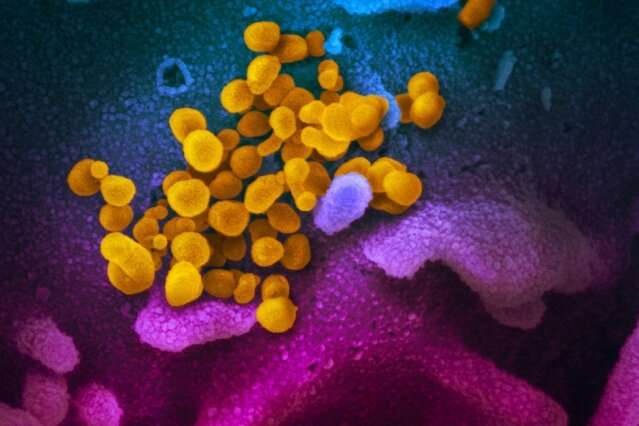New anti-COVID-19 nanocoating surface developed

Ben-Gurion University of the Negev (BGU) researchers are developing safe anti-viral nanoparticle coatings that demonstrate significant potential in preventing active surface infection with SARS-CoV-2.
The new coating could be used in hospitals and healthcare facilities, as well as public locations such as schools, airports, trains, buses and cruise ships, where it was shown that the active virus lasted 17 days on surfaces.
The coatings contain nanoparticles of safe metal ions and polymers combined with anti-viral and anti-microbial properties that will be effective for weeks or even months. In proof-of-concept experiments, the researchers assessed the effectiveness of surfaces coated with nanoparticles of various metals on the infectivity of HIV family lentiviruses in human cells. Findings showed that surfaces coated with copper nanoparticles significantly block virus infection of the cells.
The research team is led by Prof. Angel Porgador, of the BGU Department of Microbiology, Immunology and Genetics and the National Institute for Biotechnology in the Negev (NIBN), and Dr. Mark Schvartzman, in the BGU Department of Materials Engineering, along with Ph.D. students Yariv Greenshpan, Esti Toledo and postdoc Guillaume Le Saux.
Prof. Porgador says, "The current coronavirus is transmitted not only through droplet spray, but also via surfaces that can transmit the virus from one person to another. It is important to remember that we are developing coatings that will be effective not only against the coronavirus but also against other viruses, as indicated in our proof of concept experiments, and also against bacteria, so they will be relevant for a wide range of applications."
The anti-viral coatings are based on polymers that contain nanoparticles of copper and other metals and can be painted or sprayed on surfaces. These nanoparticles will enable controlled release of metal ions onto the coated surface. Studies show that these ions have a strong anti-viral effect, which can eradicate virus particles that adhere to the surface. Because the release of ions is extremely slow, the coating can be effective for a long period of time—weeks and even months—and it will reduce the infectivity of the virus particles by more than tenfold.
According to Dr. Schvartzman, "While current surface disinfection methods rely mostly on substances that are poisonous for people, such as bleach, or on substances that evaporate readily being based on alcohol, the coating that we are developing is based on metals that are toxic for viruses or bacteria, but completely human friendly.
"It should be noted that until now using such metals for anti-viral applications has encountered significant challenges due to the nature of the metals, such as the tendency to oxidize and corrode. Nanoparticles provide a solution to these obstacles. Another advantage of nanoparticles is the large surface area to volume ratio, which results in an efficient anti-viral surface area using a relatively small amount of metal."
The new approach is just one of some 70 initiatives underway as part of the BGU COVID-19 Response Effort.
"As we get back to work, it will be imperative to leverage new solutions such as BGU's new nanocoatings to ensure that we limit surface to human transmission," says Doug Seserman, chief executive officer of American Associates, Ben-Gurion University of the Negev. It is another fast-developing solution to challenges of the coronavirus pandemic at BGU."




















